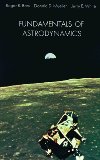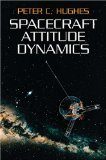Wikipedia dicit:
Messier 87 (also known as Virgo A or NGC 4486, generally abbreviated to M87) is a supergiant elliptical galaxy in the constellation Virgo. One of the most massive galaxies in the observable universe, it has a large population of globular clusters—about 12,000 compared with the 150–200 orbiting the Milky Way—and a jet of energetic plasma that originates at the core and extends at least 1,500 parsecs (4,900 light-years), traveling at relativistic speed. It is one of the brightest radio sources in the sky and a popular target for both amateur and professional astronomers.
The French astronomer Charles Messier discovered M87 in 1781, and cataloged it as a nebula. M87 is about 16.4 million parsecs (53 million light-years) from Earth and is the second-brightest galaxy within the northern Virgo Cluster, having many satellite galaxies. Unlike a disk-shaped spiral galaxy, M87 has no distinctive dust lanes. Instead, it has an almost featureless, ellipsoidal shape typical of most giant elliptical galaxies, diminishing in luminosity with distance from the center. Forming around one-sixth of its mass, M87’s stars have a nearly spherically symmetric distribution. Their population density decreases with increasing distance from the core. It has an active supermassive black hole at its core, which forms the primary component of an active galactic nucleus. The black hole was imaged using data collected in 2017 by the Event Horizon Telescope, with a final, processed image released on 10 April 2019.
The galaxy is a strong source of multiwavelength radiation, particularly radio waves. Its galactic envelope extends to a radius of about 150 kiloparsecs (490,000 light-years), where it is truncated—possibly by an encounter with another galaxy. Its interstellar medium consists of diffuse gas enriched by elements emitted from evolved stars.
Video Credit: NASA









 Subscribe to our RSS feed
Subscribe to our RSS feed











There are no comments.
Add A Comment